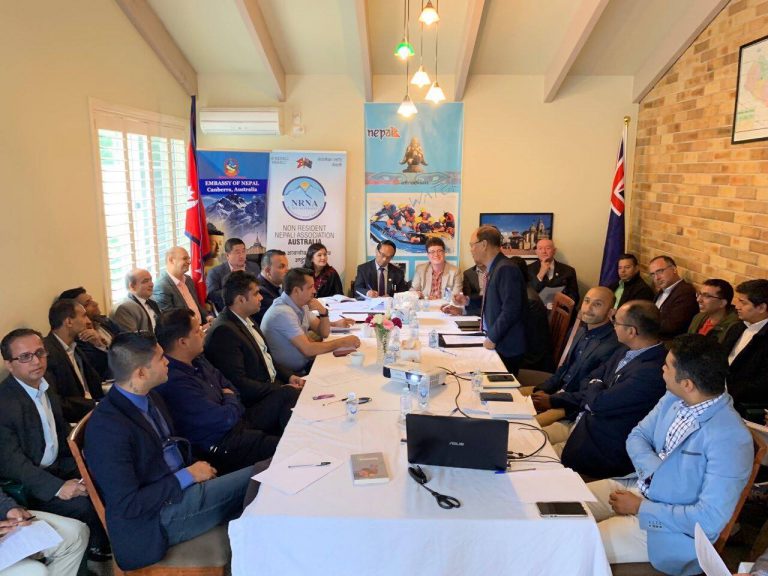
Prativa Shrestha
March 26, 2019
The stakeholder meeting held in Embassy of Nepal in Canberra has recommended Government of Nepal to arrange pre-departure information session or test before issuing NOC (No Objection Certificate) to students.
In a one-day consultation programme held by Embassy of Nepal, Canberra along with Non-Resident Nepali Association Australia, issues and problems faced by Nepali students in Australia were discussed and recommendations were consulted.
Different issues were highlighted in the interaction, which included problems related to education provider, courses, health, work/employment and accidents.
The latest problem faced by more than one thousand Nepali students in Australia was related to Nursing education providers. The providers enrolled students in Diploma of Nursing without getting proper accreditation from related authority. As a result, students had to go through a lot of havoc and uncertainty.
The case of AIBT in Sydney and Brisbane caused Australian authority to cancel the provider’s registration. The final decision is yet to come, as the provider has appealed for stay. Occurrence of similar issue in Victoria has raised the alarm to related stakeholders in Australia and Nepal.
Following this issue, it was found that students did not have proper information related to their course and their provider. Students were totally depended on the limited information provided by their education agents and provider. Therefore, it was recommended that proper pre-departure information session or test should be mandatory to make sure students know about the course, education providers, lifestyle in Australia, work related issues before getting their NOC from Government of Nepal. Besides, student handbook published by NRNA Australia should be made available to students to inform and aware them.
Further, health insurance policy and accidents of students were also discussed. The participants came to conclusion that in case of unfortunate events of accidents and deaths, the insurance policy provider should be responsible to treat them and in case of death, they should cover the responsibility to repatriate the dead body. Similarly, it was also advised that NRNA and other Nepali community based organisations should provide correct advice responsibly and help them reach to related authorities like, Consul General offices and Embassy.
The programme was concluded with commitment of developing a strong action plan to implement and lobby the lists of recommendations and to conduct such interaction regularly.
The interaction programme was attended by Chargé d’Affaires a.i., Draupada Sapkota, Honorary Consul Generals/Consuls, NRNA Regional Coordinator, Oceania, President and members of NRNA Australia, President of Council of International Students Australia (CISA), representatives of Nepali community, students and journalists on 24th March, 2019.






